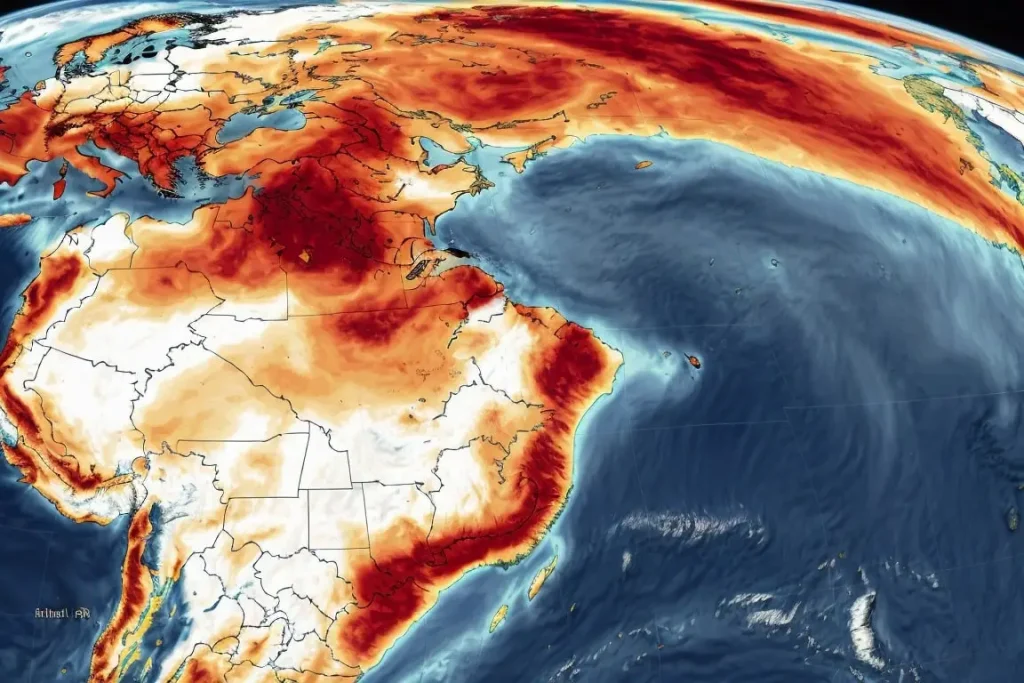Breaking Records: July 2023's Unprecedented Heatwave

A Climate Wake-Up Call
The summer of 2023 will forever be etched in the annals of climate history, marked by relentless heatwaves, raging wildfires, and devastating floods. Amid this tumultuous season, July 2023 emerges as a chilling milestone – a month that shattered records and sounded a resounding alarm about the perils of climate change. In this article, we delve into the details of July 2023’s unprecedented heatwave, its global repercussions, and the imperative for immediate climate action.
The Record-Shattering Heat
July 2023 stands as an unequivocal testament to the relentless march of climate change. NASA’s Goddard Institute for Space Studies (GISS) in New York confirmed that July 2023 was, without question, the hottest month ever recorded globally. The data reveals a sobering reality: July 2023 was 0.43 degrees Fahrenheit (0.24 degrees Celsius) warmer than any previous July, and it surpassed the average July temperature between 1951 and 1980 by a staggering 2.1 degrees Fahrenheit (1.18 degrees Celsius).

These temperature anomalies, observed by GISS, underscore that we are not merely experiencing a spell of hot weather but witnessing a profound transformation in our climate.
Global Impacts of the July 2023 Heatwave
The repercussions of this record-breaking July heatwave reverberated globally. Regions spanning South America, North Africa, North America, and the Antarctic Peninsula bore the brunt, with temperatures soaring up to 7.2 degrees Fahrenheit (4 degrees Celsius) above average. Tens of millions of people were placed under heat warnings, and the extreme heat contributed to a distressing surge in heat-related illnesses and fatalities.
Climate Change's Handprint on Extreme Events
It is crucial to differentiate between weather and climate. While weather refers to short-term atmospheric conditions, climate change pertains to long-term shifts in average weather patterns. Unprecedented heatwaves, extreme storms, and their dire consequences are not isolated events but manifestations of climate change.
El Niño's Influence
The role of El Niño, a climate phenomenon characterized by warmer ocean temperatures in the tropical Pacific, cannot be discounted. NASA’s analysis identified warm ocean temperatures in the eastern tropical Pacific as evidence of El Niño, which began developing in May 2023. While El Niño can contribute to year-to-year variability in global temperatures, its full impact typically manifests in the early months of the year. The world is poised to witness El Niño’s most substantial effects in February, March, and April 2024.
The Urgency of Climate Action
The scorching July 2023 serves as a clarion call for immediate climate action. Characterizing this as the “new normal” would be a gross understatement. Climate change is an ongoing crisis, and without drastic measures to reduce carbon emissions, the situation will exacerbate.
“Climate change is impacting people and ecosystems around the world, and we expect many of these impacts to escalate with continued warming,” warns Katherine Calvin.
Solutions for a Sustainable Future
Amid these grim realities, hope glimmers on the horizon. Transitioning to clean energy sources, such as solar and wind power, is both necessary and economically viable. Clean energy technologies are rapidly becoming more cost-effective than their fossil fuel counterparts.
International Collaboration: A Global Imperative

In facing the climate crisis, no nation stands alone. International collaboration is not just an option; it’s an imperative. The interconnected nature of our planet’s climate system knows no borders, and the solutions to mitigate climate change require a united effort. Governments, organizations, and individuals worldwide must come together to reduce greenhouse gas emissions, adapt to the changes already underway, and seek innovative solutions to protect our planet.
Conclusion
July 2023’s unprecedented heatwave has set a new standard for the severity of climate-related events. It is not a “new normal” that we can passively adapt to; it is a crisis that demands our undivided attention, dedication, and an unwavering commitment to a sustainable future. As we progress, we must heed the wake-up call sounded by July 2023 and tirelessly work toward mitigating the effects of climate change on our communities and our world. The choice is unequivocal: take decisive action or bear the consequences of inaction.


